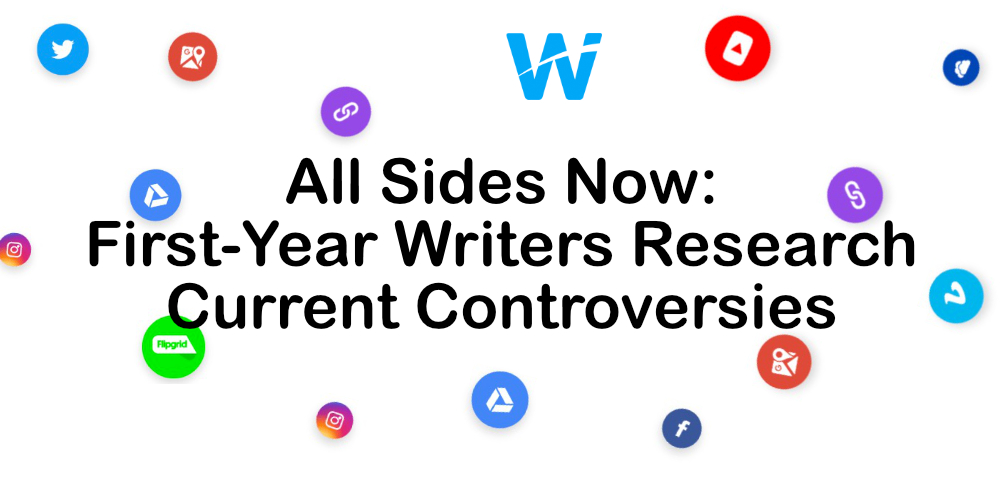All Sides Now: First-Year Writers Research Current Controversies
News
WRTC faculty member Danielle DeRise has had exciting success this semester with her four WRTC 103 courses, using an approach to controversial issues that relies on collaboration in small groups.
“Rhetorical Reading and Writing,” the recently re-branded first-year writing course, includes in the Student Learning Objectives the following: “Compose in multiple environments using traditional and digital communication tools.”
Professor DeRise’s approach highlights that learning objective (while folding in all of the others) with an online group project that has generated considerable student engagement and enthusiasm, not to mention productive results.
“This project offers students the opportunity to enter the conversation about debatable, controversial issues,” she explains. “These are issues they’ve become aware of through social media and other sources.”
DeRise’s students explore differing viewpoints on hot-button issues by simply gathering evidence of the varying positions. She employs a sharable online content curation tool, Wakelet, that she learned about through the Libraries’ Digital Projects Team last fall.
“I’ve used the concept for several semesters now,” she says, “but with the situation this semester (being online) the new mode of delivery has been exciting to see.”
This project is part of a sequence of assignments that will lead to a position paper, an argument using evidence from credible sources, and a visual aid.
Here are three examples from DeRise’s classes:
"What Is 'Cancel Culture' and What Is it Truly Capable of? Viewpoints on the Topic," by Kara Morris, Brendan Singy, and Scottie Armbruster
"Cochlear Implants for Children," by Jessica Hall, Alli Bodenschatz, and Anne Kathrine Andersen
"Online Learning In Response to a Pandemic: Is it Working?" by Chloe O'Hallaron and Amelia Sheldon
